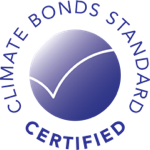
Status: The Alternative Proteins Criteria is now available for Certification.
The Public Consultation for this Criteria was held from 9 December 2024 to 7 February 2025. Following this period, the feedback received was incorporated ahead of the official launch.
TIMELINE OF DEVELOPMENT:
- June 2024: Technical Working Group (TWG) Launch
- July 2024: Industry Working Group (IWG) Launch
- December 2024 to Feb 2025: Public Consultation
- April 2025: Criteria available
 |
 |
|
Reyes Tirado,
Agri-Food Standard Lead
|
India Langley,
Agri-Food Sustainability Analyst
|
 |
 |
 |
 |
|---|---|---|---|
| Jo Raven NGO Thematic Research and Corporate Innovation FAIRR |
Dana Wilson Senior Analyst for Protein Diversification Engagement NGO FAIRR |
Tom Chapman Nonprofit Food Systems Impact Advisor GFI |
Rosie Wardle Venture Capital Partner / Co-founder Synthesis Capital (VC) |
 |
 |
 |
 |
| Duncan Williamson NGO Senior Policy & Advocacy Manager Rainforest Alliance |
Dave Luo Coalition of investors Research Manager Asia Research & Engagement (ARE) |
Aditi Mukherji Agricultural Innovation Network Director, Climate Change Impact Platform CGIAR |
Joyashree Roy Research Bangabandhu Chair Professor Asian Institute of Technology |
 |
 |
 |
 |
| Cleo Verkuijl Research and Policy Institute Research Fellow Stockholm Environment Institute (SEI) |
Joanna Wolstenholme
Environmental Authority Senior Programme Officer Nature Economy
UNEP |
Joanna Trewern
Director of Partnerships and Institutional Engagement
ProVeg International
|
Parag Acharya
Greenwich University
|
 |
|||
|
Li Wenxin
Global Environment Facility
|
Industrial Working Group Members:
 |
 |
 |
 |
|---|---|---|---|
|
Carrie Chan Founder at Avant and Global Innovator at the World Economic Forum |
Grace Liu
Director of Strategic Partnerships GFI Consultancy |
Didier Toubia Co-Founder & CEO Aleph |
Eugene Wang Founder Sophie Bionutrients |
 |
 |
 |
 |
| Ira van Eelen Board Member Cellulaire Agricultuur Nederland / EAT JUST |
Yulia Solomina Director of Sustainable Finance EMEA ING EMEA |
Katherine Foster Food Innovation Specialist World Economic Forum / EIT Food |
Lorena Savani Co-leader Protein Diversification Think Tank |
 |
 |
 |
 |
| Marie-Pierre Bousquet-Lecomte Former Science-Based Targets Implementation Director Ex-Danone |
Indy Kaur Founder Plant Futures |
Sarah Gaunt Director SPG Innovation Ltd / Rootiful |
Taís Toledo Program Officer - Agriculture Global Methane Hub |
 |
 |
 |
 |
| Vanessa De La Ossa Director of Sustainable Finance America ING America |
Jeff Doyle Director of Program Development Plant Based Foods Association |
Jonathan Avesar Scientific Lead Lever |
Sid Mehta Founder & Principal Greenworks Inc |
 |
 |
 |
 |
| Lisa Sweet Director, Private Sector Engagement Tilt Collective |
Julie Emmett Director of Program Development Plant Based Foods Association |
Melanie Lavine Manager, Agriculture and Food World Business Council for Sustainable Development |
Jette Young Professor, Science Team Leader Protein Diversification Think Tank / Aarhus University |
 |
|||
| Deniz Koca Systems Analyst and System Dynamics Modeller Protein Diversification Think Tank / Lund University |
|||
The Agriculture Criteria are already available for use in certifications. Bonds and loans linked to eligible assets and projects will be aligned with the Paris Agreement 1.5°C limit. Get in contact with certification@climatebonds.net to start the certification process for your agriculture green bond.
